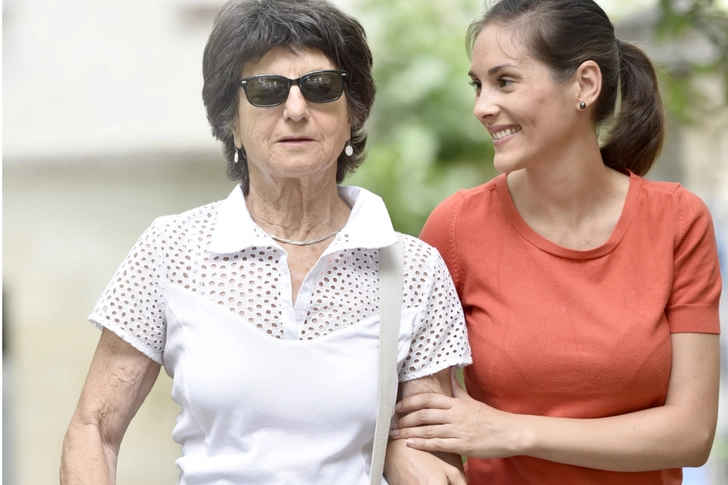- Age-Related Macular Degeneration (AMD)
- Wet Age-Related Macular Degeneration
- Geographic Atrophy
- Appointment Prep
- View Full Guide
Caregiver Guide to GA


Understanding Geographic Atrophy
Geographic atrophy (GA) is an advanced form of age-related macular degeneration (AMD), which causes vision loss. People with GA may struggle with everyday activities like reading and moving around the house.

Learning About GA
One of the first steps in caregiving is to learn about GA. Understand what causes it, the symptoms your loved one might experience, and ways to manage those symptoms. Knowledge is a powerful tool in helping your loved one adjust to life with GA.

Low-Vision Aids
Explore low-vision aids. These tools help maximize the remaining vision your loved one has. Examples include magnifying devices, special lighting, large-print reading materials, and audio devices.

Home Modifications
Make changes to the home to ensure safety and ease of movement. Improve lighting in key areas, reduce glare, use contrasting colors for better visibility, and organize essential items.

Effective Communication
Adapt your communication style. Use large fonts in written materials, greet your loved one upon entering a room, and inform them when you are leaving. Clear and considerate communication can help them feel more comfortable and aware of their surroundings.

Guiding Techniques
Learn proper guiding techniques. Instead of holding their arm, let them take yours to follow your lead. This approach helps them anticipate changes in their path and feel more secure while moving around.

Descriptive Assistance
Use descriptive language to help your loved one understand their environment. Describe people, places, and objects in detail. For example, use the face of a clock to explain the location of food on a plate.

Get Support
Use resources such as transportation, meal delivery, and respite care services. Vision rehab specialists can help your loved one make the most of their remaining eyesight. A strong network, whether through friends, family, or professional services, can support you in your caregiving journey.
Photo Credits:
1. Studio Romantic/Shutterstock
2. Prostock-studio/Shutterstock
3. Skrypnykov Dmyrto/Shutterstock
4. Artazum/Shutterstock
5. Ground Picture/Shutterstock
6. Studio Romantic/Shutterstock
7. goodluz/Shutterstock
8. pics five/Shutterstock
Family Caregiver Alliance: “Vision Loss and Blindness.”
Prevent Blindness: “Eye Diseases & Conditions: Geographic Atrophy (GA).”
Living Well With Low Vision: “The ABCs of Caring for the Visually Impaired.”
Aging Arkansas: “11 Tips for Self-Care as a Family Caregiver.”
Mayo Clinic: “Stress Management.”
Harvard Health Publishing: “Self-care for the caregiver.”Photo Credit: SetsukoN / Getty Images
Linda Chernek Moore, age-related macular degeneration advocate, Acworth, GA.